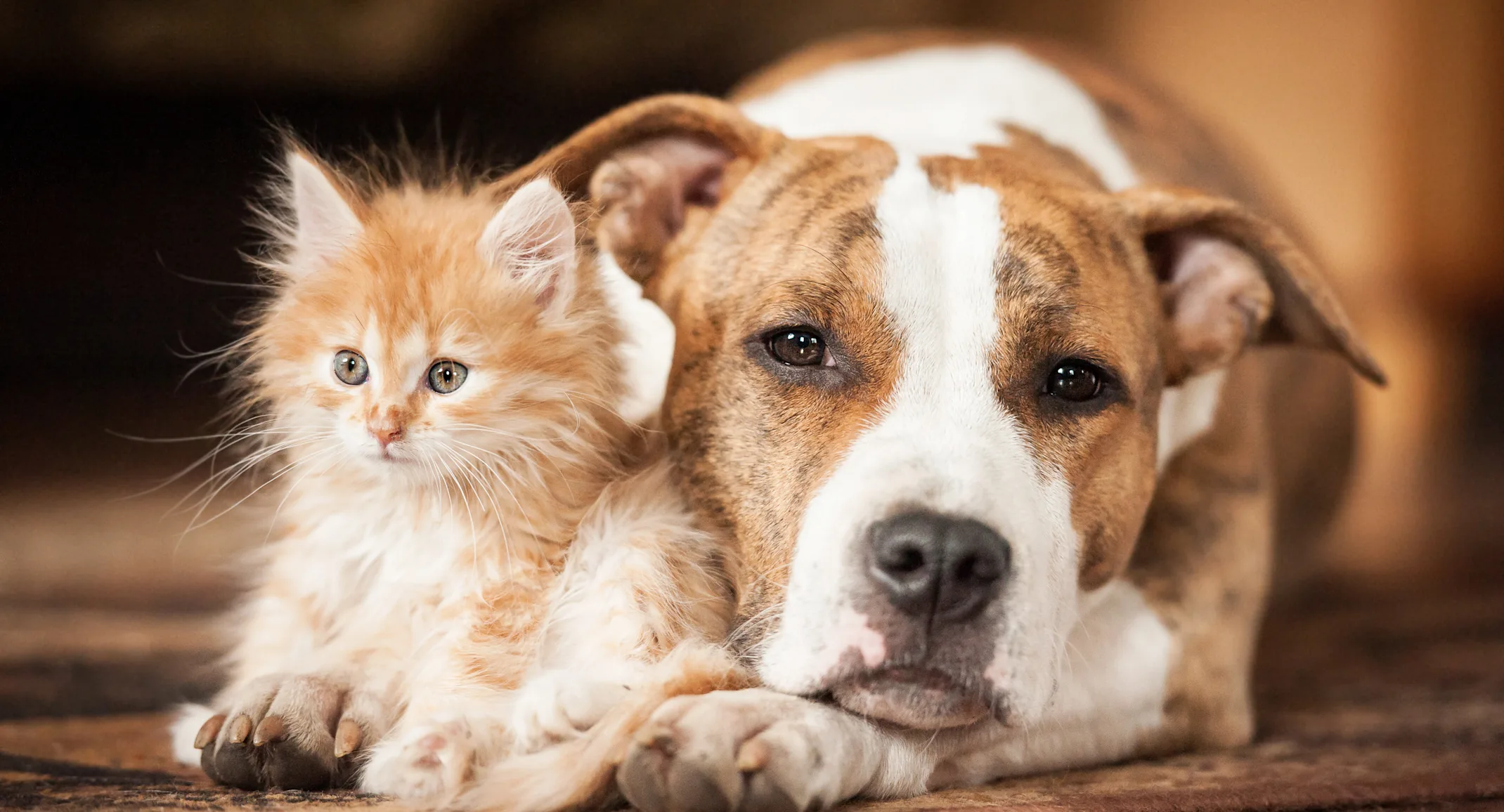Importance of Socializing Puppies and Kittens
General

What is Socialization?
Socialization refers to the process of getting puppies and kittens used to people, other animals, and places or things that they will encounter as adults. It is much more than just getting a dog or cat used to other animals of its own species. Proper socialization will get your new puppy or kitten used to things like car rides, grooming, vacuums, loud noises, other animals, and other pets. The key is to gently expose and introduce puppies and kittens to things that will experience as adults so that your pet can react appropriately instead of fearfully. It is especially crucial to socialize orphan pets because they have had little or no interaction with a mother or siblings.
An animal’s breed, size, personality, and health can influence the way a pet interacts with others even if it has been correctly socialized. Some pets are not as social as others and may prefer to not spend time with large groups of people or animals. Socialization is important for teaching these dogs and cats how to handle themselves in these situations and how to communicate their needs to their owners.
When to Socialize
The ideal time to socialize puppies is between 3 to 14 weeks of age, and kittens are best socialized between 3 and 9 weeks. Both puppies and kittens form relationships and attachments easily during these growth periods. At this point, your pet will be developed enough to begin interacting with others and exploring their world. Ideally, socialization should be started as early as possible to maximize effectiveness.
Things that happen to your puppy or kitten during its socialization period will create influential memories and have long-lasting effects on how your pet sees, interacts with, and experiences the world. It is of the utmost importance to have this time period is a safe and positive experience for your puppy or kitten.
How to Socialize a Puppy or Kitten
The goal of socialization is to allow your puppy or kitten to interact with places, people, animals, and things so that they are comfortable with their environment. During socialization, try to minimize training and disciplinary action. Do not try to reinforce behaviors or issue commands as this will distract your pet from new experiences, balancing play and learning is a challenge but is important for your puppy or kitten.
Simulate or place your pet into situations and environments that they will experience throughout their life. This includes car rides, carriers, toys, grooming, meeting animals, meeting new and different types of people, and vet visits. Make sure to introduce these new experiences to your animal in a way that minimizes stress and fear. If your pet reacts poorly you may need to scale back the introduction and interaction to a point where your pet feels comfortable. This can be accomplished by having your pet watch from further away or distracting them with treats until they feel safe and comfortable once again.
You should never discipline a stressed or scared puppy or kitten if they display signs of anxiety during these interactions. This will just reinforce their fear and can lead to problems in the future. It is of the utmost importance to keep socialization relaxed as so it will be most conducive to learning.
Gently interact physically with your pet every day in different ways so they become comfortable with you, people in general, and with being handled in different ways for different reasons. This is also enriching for their mental development. It is important to have your pet meet and interact with non-family members both inside and outside the house, so they get used to being around new people. Make sure to touch your pet’s ears, face, and paws so they are more relaxed when veterinarians and groomers interact with them in the future.
Try to introduce your new pet to multiple people and at least one new place every week, and remember to keep things relaxed, comfortable, and positive for your puppy or kitten.
What if my Puppy or Kitten Is Not Fully Vaccinated?
If your new pat has not yet been fully vaccinated make sure to limit their interactions to animals that you are certain are fully vaccinated. Try to avoid dog parks, kennels, and other locations as young puppies and kittens are more susceptible to infection and disease than older animals. It is likely safe to take your new pet to appropriately run and clean puppy classes or other events. However, it is important to remember that this is still a risk, even if a calculated one. If you have any doubts as to whether a situation is safe for your pet, it is better to err on the side of caution.
Consequences of Not Socializing
Appropriately socializing kittens and puppies during their developmental periods is proven to lessen fear aggression, fear, and anxiety when exposed to new animals, people, places, and situations. Improperly socialized animals may experience increased sensitivity and stress when exposed to new experiences. This can lead to problematic behaviors including anxiety and hostility that may impact both your pet and the people and animals around it.
Properly socializing your new puppy, kitten, or any young animal is crucial to raising a confident, well-behaved, and happy pet.

